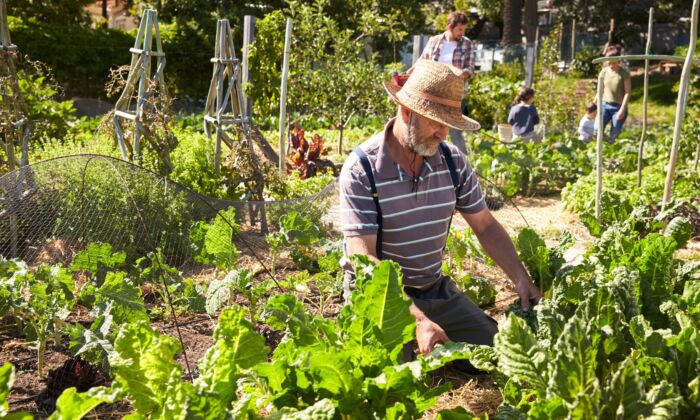“Given associations of perceived health with mortality and of sustained higher levels of alpha diversity with decreasing risk of heart disease, diabetes, sarcopenia, and obesity (conditions prevalent among cancer survivors), these effects are noteworthy,” the authors wrote. Alpha diversity refers to a measure of bacterial diversity in the gut. The trial included 381 cancer survivors in Alabama aged 50 and older who were at increased risk of chronic disease because they ate less than five servings of fruit and vegetables and performed less than 150 minutes of weekly physical activity.
Participants were randomly assigned to two groups: one that would begin the trial immediately (194 participants) and another placed on a waitlist to start the following year (187). The trial began in Jefferson County, Alabama, in 2013 but was expanded in 2017 to include participants from 26 other counties. It concluded in 2022.

Cancer survivors who lived independently were given one raised-bed garden or four grow boxes with seeds, gardening tools, and other resources needed to start a home-based vegetable garden. They were provided biweekly mentoring and guidance on planning, planting, and caring for a garden by certified master gardeners from the Alabama Cooperative Extension System. The research team measured participants’ strength, balance, and agility.
They also collected data on vegetable and fruit consumption and physical activity levels. Principal investigator Wendy Demark-Wahnefried, a professor in the School of Health Professions at the University of Alabama in Birmingham, noted in a press release that cancer survivors are a vulnerable population at much greater risk of developing a second cancer, heart disease, and diabetes. She also emphasized that cancer survivors age at a faster rate and are at an increased likelihood of becoming debilitated and losing their independence.
“Interventions that can support them in making healthier food choices, such as eating more vegetables, and providing more opportunities to increase physical activity are crucial,” she continued. “Cancer survivors should explore ways to cultivate their health—and a vegetable garden is a good place to start.” “What that means is making sure that the diet is varied and has the appropriate components,” she added.
Ms. Apicella explained that this means ensuring lean proteins and complex whole grains are included with every meal “because those nutrients are going to offer many benefits, fiber, and B vitamins that are helpful just for general health.” She added that besides a varied diet, cancer survivors should have a “colorful diet” of produce because the different antioxidants and nutrients in colorful fruits and vegetables work synergistically to boost health.
Adriana Carrieri, a nutrition research fellow at Montefiore Einstein Comprehensive Cancer Center in New York, told The Epoch Times that medical and scientific communities currently consider the Mediterranean diet the healthiest diet plan. According to Ms. Carrieri, this is because the Mediterranean diet encourages eating whole foods and few or no processed foods.
It also highlights the importance of healthy fats—such as those found in olive oil and nuts—over fats from animal sources, such as dairy and red and processed meats. This is particularly interesting because gardening is one of the few activities that can potentially affect physical activity levels, diet, and mental health simultaneously, she continued—“all areas we aim to improve among cancer patients and survivors.” According to the American Cancer Society, too much time spent resting or sitting can cause a loss of body function, reduced range of motion, and muscle weakness.
The society notes that many cancer care teams now urge patients to be as physically active as possible before, during, and after cancer treatment. However, Dr. Garg cautioned that while cancer survivors must consult their health care providers about how much physical activity they should strive for, walking and stretching are good ways to start.
“Try to exercise at least 30 minutes every day,” he advised. He noted that while the Alabama study showed the benefits of physical activity and plant-based diets in cancer survivors, access to fresh produce is a major barrier in urban settings, “where either the supermarkets are far, or the costs are prohibitory.” A lack of awareness and the “overwhelming influence of processed food industry on our food habits” are other barriers facing many cancer patients, he added.
“Gardening not only promotes physical activity but also improves access and awareness regarding benefits of fruits and vegetables in diet, as evident from the results of this study,” Dr. Garg concluded..


















